In the far north of Kruger National Park, the wilderness has its own pulse – a rhythm you feel when you pause and listen. The Outpost, known for its striking design and sweeping views over the Luvuvhu River, is inviting guests to tune into nature in a new way with its Sound Safari. This is safari reimagined – an intimate journey where the soundtrack of the bush is just as important as the sights before you.
Here, it’s not about rushing to tick off sightings. It’s about slowing down, opening your ears, and letting the bush tell its story through its natural melodies.
A Safari Guided By Sound
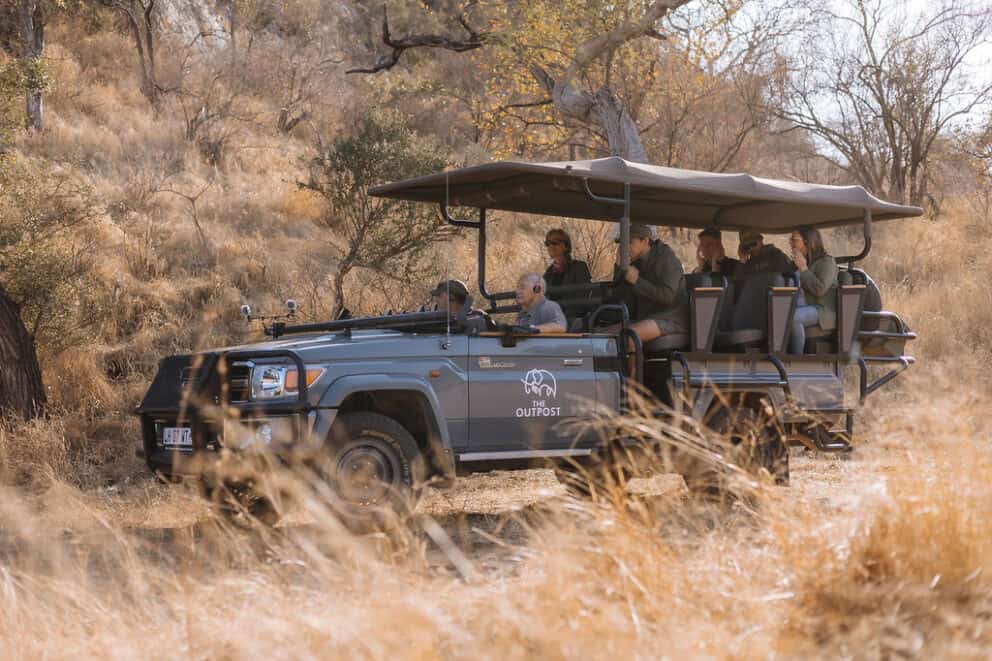
Most Kruger National Park safaris focus on what you can see: elephants at the river, lions in the shade, and a fish eagle circling above. But nature is more than a visual spectacle – it’s a living orchestra.
On Sound Safari, expert guides lead you through landscapes where safari sounds take centre stage. They help you interpret the calls, rustles, and distant rumbles that shape life here.
You might stop under a fever tree to hear the faint crackle of dry grass – the sign of an approaching herd. Or pause beside the river, listening as hippos grunt and snort across the water. Every sound becomes part of a deeper understanding of the wild.
“The Sound Safari at The Outpost is our invitation to slow down and listen to the wild,” explains Lauren Davies, CEO at Rare Earth.
“In a world that moves at lightning speed, we’ve created a way for guests to reconnect with nature on its own terms, through the pure, unfiltered language of sound.”
The Art Of Listening In The Bush
In the Makuleke Contractual Park, where The Outpost sits, sound is an active guide. Your safari might begin with the sharp alarm snorts of impala, warning of a predator. It might be punctuated by the mournful duet of African fish eagles or the sudden hush that signals something unseen is moving nearby.
Guides trained in Kruger National Park safari acoustics can read these moments instantly. They’ll help you notice how different species communicate and respond to one another – a skill that transforms the way you connect with the environment.
And, beyond the knowledge, there’s the grounding effect. Away from phone alerts and urban noise, the bush’s layered soundtrack brings you fully into the present.
Lauren adds: “Whether it’s the deep rumble of elephants in conversation or the chorus of frogs after sunset, these moments strip away distraction and remind us that the most meaningful encounters are often the quietest. It’s about replacing the rush for sightings with the joy of simply being present in the bush.”
Five Fascinating Facts About Safari Sounds In Kruger
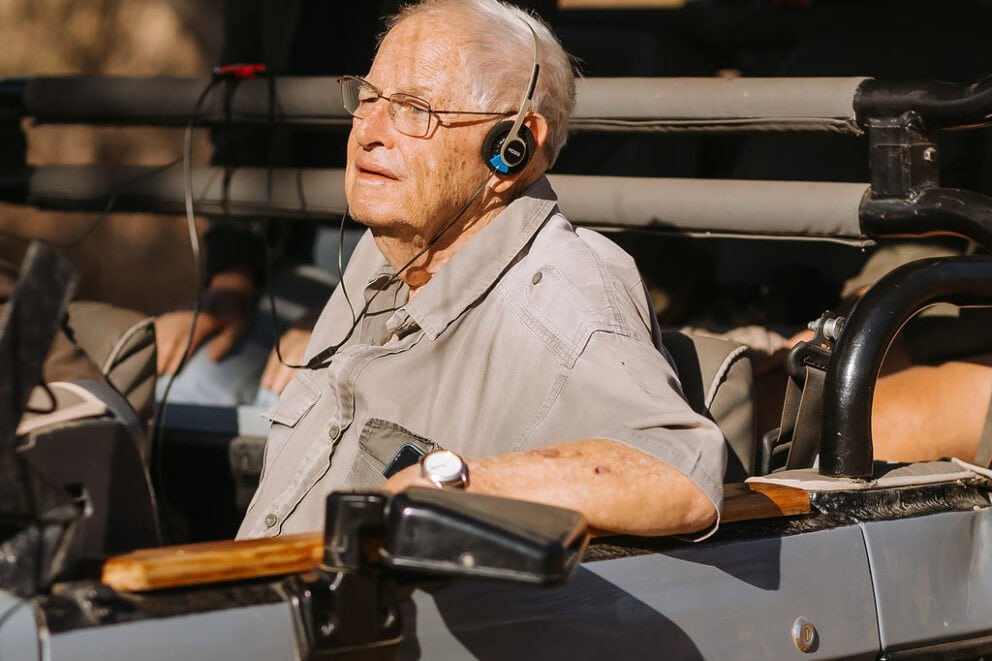
The Sound Safari isn’t just immersive; it’s educational. Here are five remarkable truths about the safari sounds you might hear at The Outpost:
Silence Can Be a Warning
One of the most important sounds in the bush is the absence of sound. When birds stop calling and antelope freeze in place, it often signals the presence of a predator such as a leopard or lion. This “acoustic vacuum” is a cue that guides watch for – or rather listen for – constantly. The next time you’re on a game drive and the bush goes unnaturally still, you might be moments away from a dramatic sighting.
Elephants Speak in Infrasound
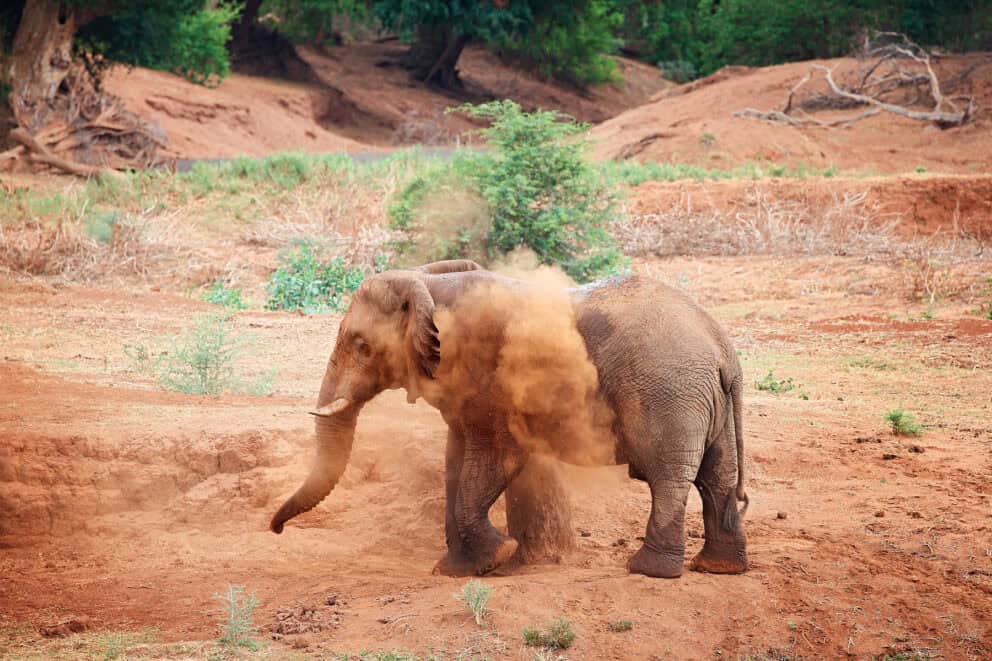
Elephants are masters of low-frequency communication, producing rumbles so deep they fall below the range of human hearing. These sounds can travel up to 10 km/6.2 mi, carrying vibrations through the ground. Other elephants sense them through sensitive pads in their feet and trunks, allowing the herd to coordinate movements, share warnings, and even signal greetings across vast distances. On a still morning in Kruger, you might just feel them before you hear them.
African Wild Dogs Have a Sophisticated “Language”
Among the most vocal predators, African wild dogs rely on an array of sounds to maintain cohesion within the pack. Short, high-pitched chirps and squeaks keep them in touch while hunting through thick bush, while the unusual “hoo” call – a long-distance locator signal – helps them regroup if separated. Researchers have found that these calls vary slightly between packs, almost like a dialect, adding another layer of complexity to their communication.
Cicadas Create One of the Loudest Natural Calls
In the heat of the South African summer, the air vibrates with the buzz of cicadas. Males produce this sound using membranes called tymbals on the sides of their bodies, rapidly contracting and relaxing them to create a resonant drone. At over 100 decibels, it’s louder than most rock concerts, and in dense woodland it can feel all-encompassing. While they may seem like random noise, these calls are precisely timed and pitched to attract mates and drown out competing males.
Birdsong is Multi-Purpose
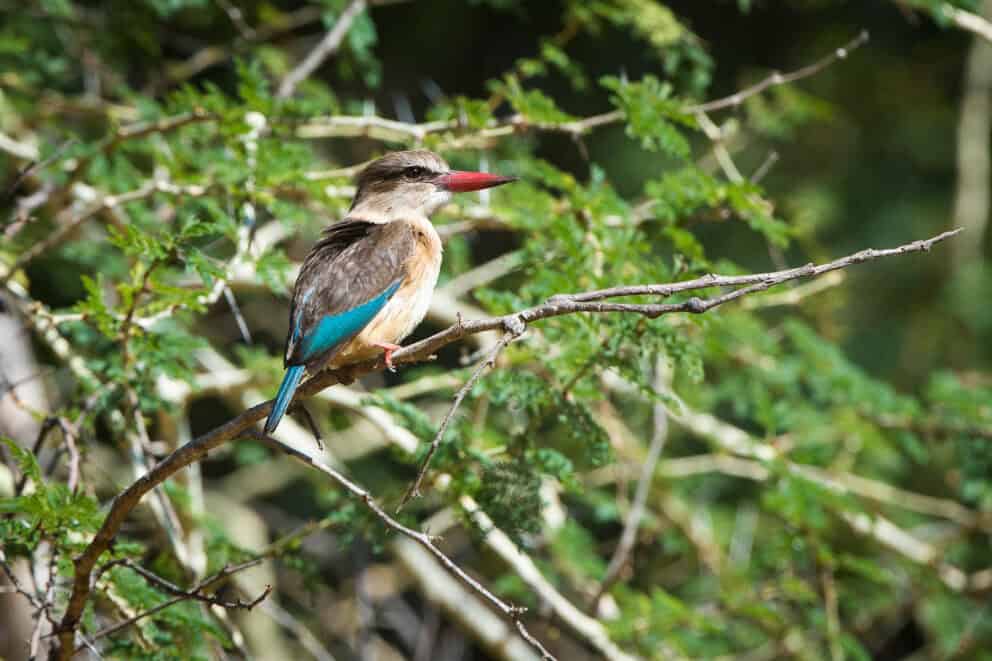
The dawn chorus in Kruger is a complex performance of overlapping songs and calls. Each species has a distinct role in this symphony: some announce territory boundaries, others call to potential mates, and still others send warnings about predators. A lilac-breasted roller’s harsh squawk might not sound melodic to us, but to other rollers it’s a clear message to stay away. Experienced guides can identify dozens of species without ever raising binoculars, using sound alone to track movement through the canopy.
The Outpost: Where The Bush Comes To You
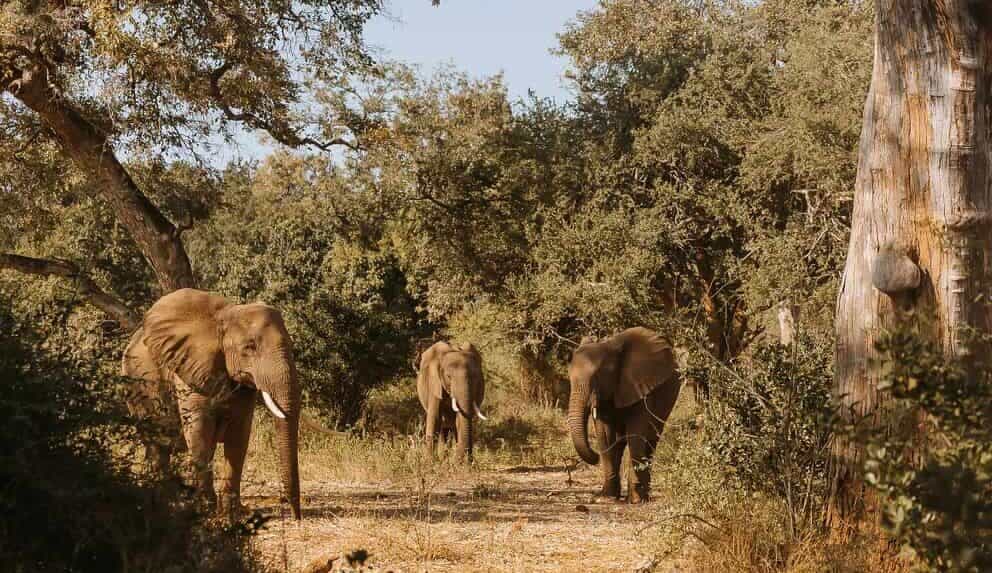
The Outpost Lodge in Kruger National Park is designed for openness. Each suite features floor-to-ceiling retractable walls, so the sounds of the wild flow in with the breeze.
At sunrise, you might hear the gentle stir of leaves and the chorus of bird calls. At night, the soundtrack changes: hyenas calling in the distance, the deep roar of lions, and the soft chirp of frogs by the river.
On a Sound Safari, you’ll carry these moments with you into the field, where guides turn them into insights. And when you return, you step back into the luxury safari experience – fine dining, attentive service, and spaces for quiet reflection.
Why Sound Changes Your Safari Experience
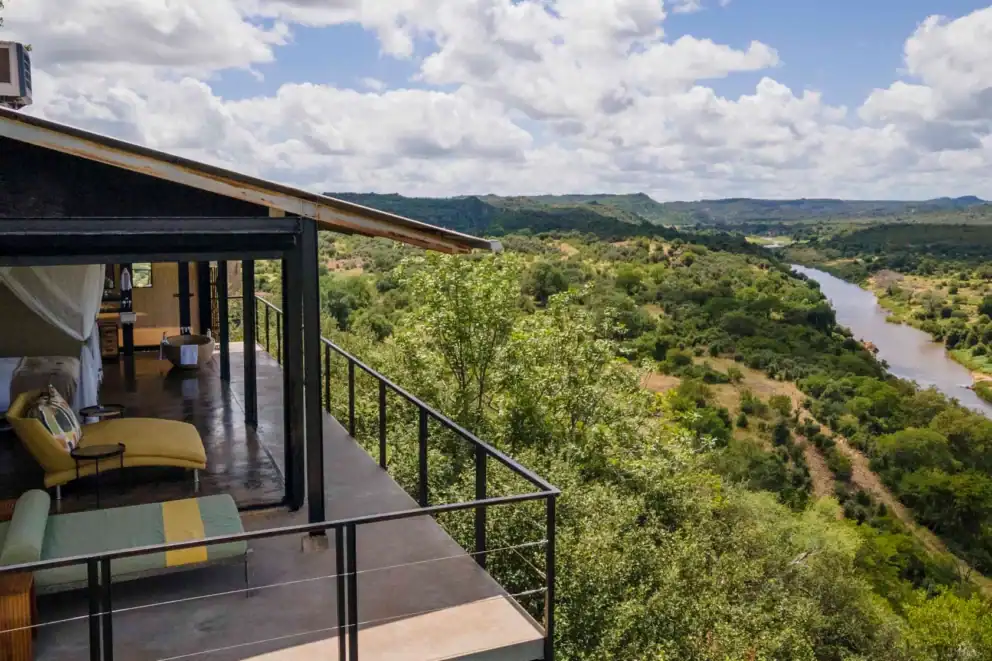
By focusing on safari sounds, you begin to notice details you might otherwise miss:
- The cadence of hooves moving over sand
- The whoosh of a hornbill’s wings
- The creak of a branch under a leopard’s weight
Guides often encourage guests to close their eyes at certain moments. Without sight, the bush paints its own vivid picture – and your mind fills in the scene.
An Invitation To Hear Kruger Differently
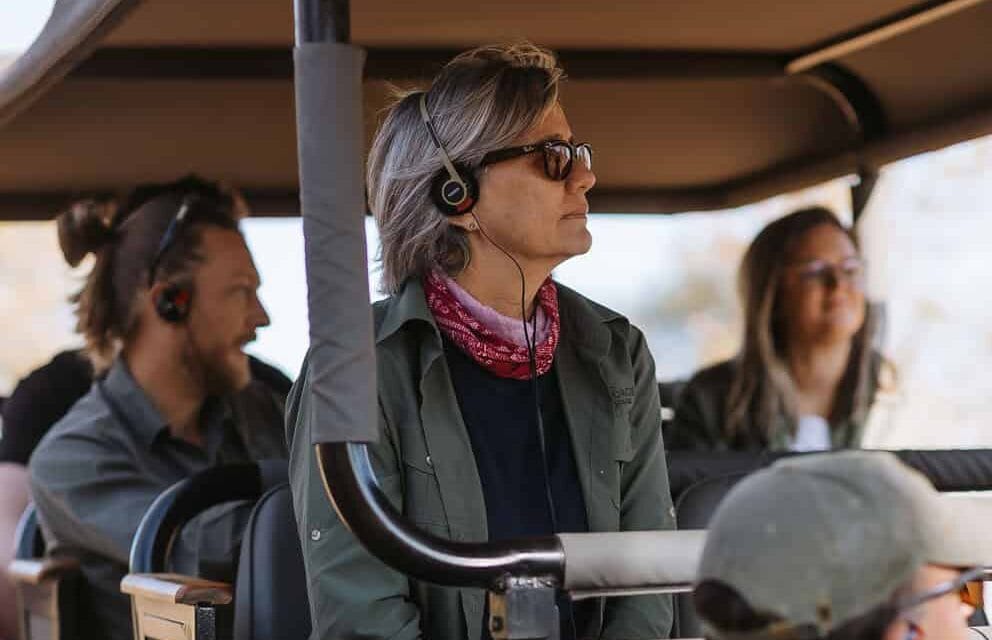
The Outpost’s Sound Safari is more than a unique activity – it’s a way of experiencing a Kruger National Park safari that feels both intimate and unforgettable. Whether it’s your first visit or your tenth, this is a chance to connect with the wilderness on a deeper level.
Ready to experience The Outpost in Kruger National Park in a new way? Our safari experts at Discover Africa can arrange your stay and ensure you enjoy this extraordinary Sound Safari in comfort and style. From tailored itineraries to seamless travel planning, we’ll make your journey as effortless as it is inspiring.
Start planning your African chapter today – and let the wild speak.






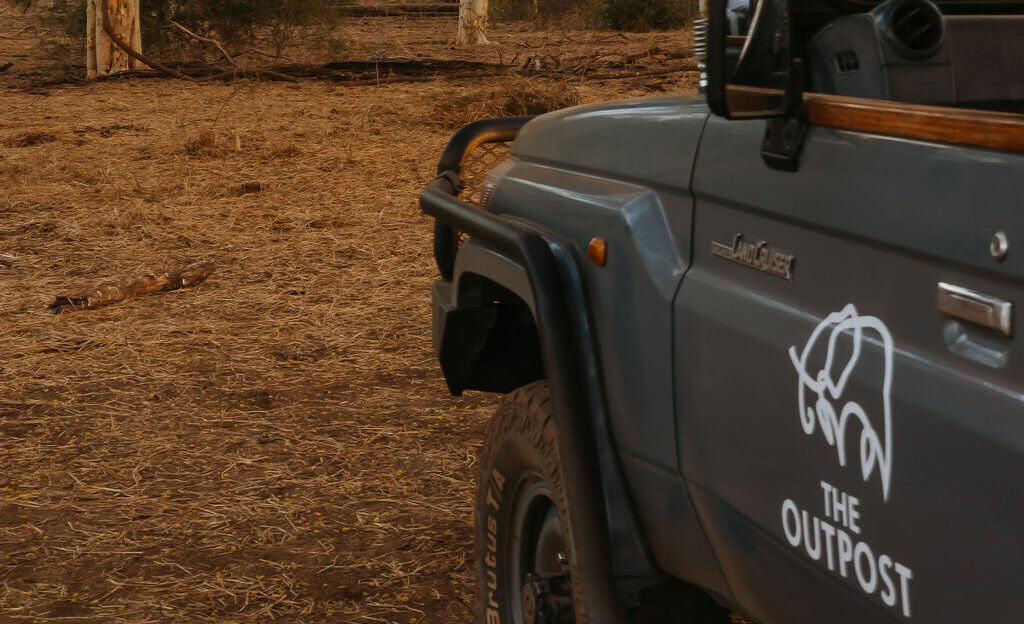

 Blog List
Blog List













Written by Micky Baker
• Travel Writer